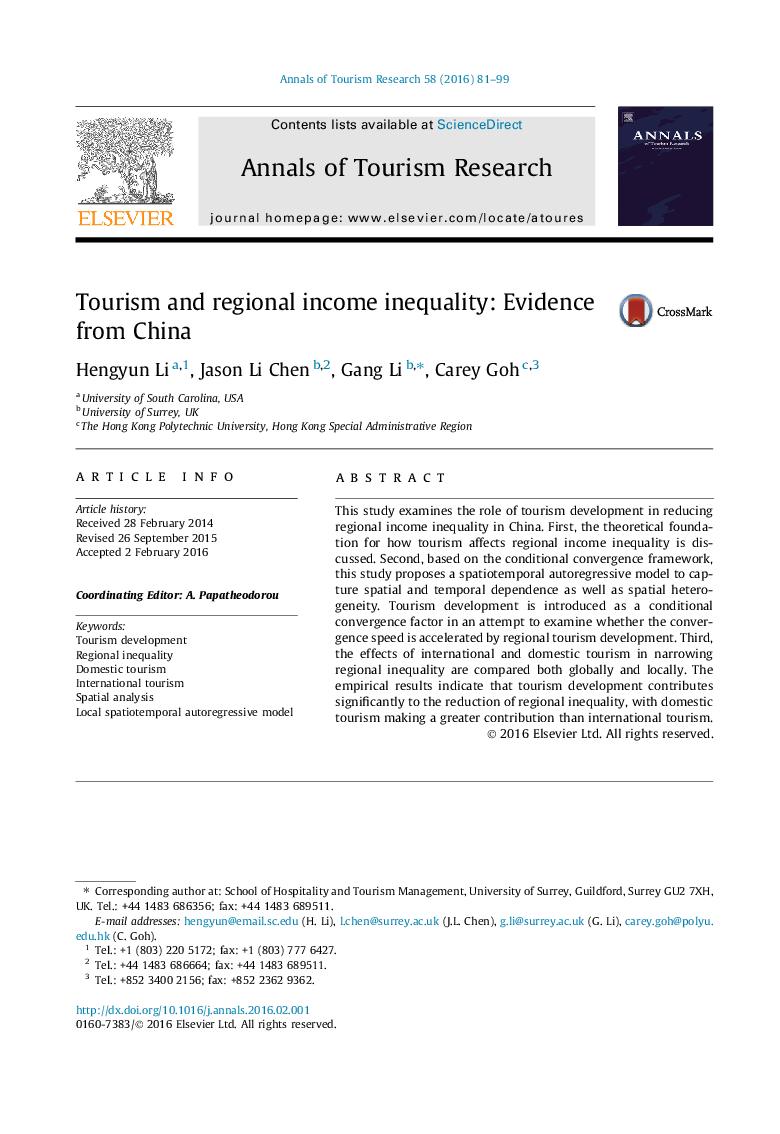| Article ID | Journal | Published Year | Pages | File Type |
|---|---|---|---|---|
| 7416511 | Annals of Tourism Research | 2016 | 19 Pages |
Abstract
This study examines the role of tourism development in reducing regional income inequality in China. First, the theoretical foundation for how tourism affects regional income inequality is discussed. Second, based on the conditional convergence framework, this study proposes a spatiotemporal autoregressive model to capture spatial and temporal dependence as well as spatial heterogeneity. Tourism development is introduced as a conditional convergence factor in an attempt to examine whether the convergence speed is accelerated by regional tourism development. Third, the effects of international and domestic tourism in narrowing regional inequality are compared both globally and locally. The empirical results indicate that tourism development contributes significantly to the reduction of regional inequality, with domestic tourism making a greater contribution than international tourism.
Keywords
Related Topics
Social Sciences and Humanities
Business, Management and Accounting
Tourism, Leisure and Hospitality Management
Authors
Hengyun Li, Jason Li Chen, Gang Li, Carey Goh,
